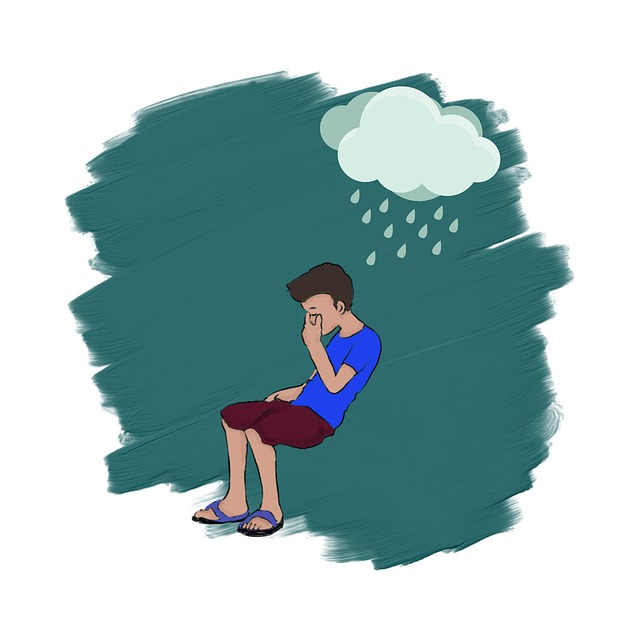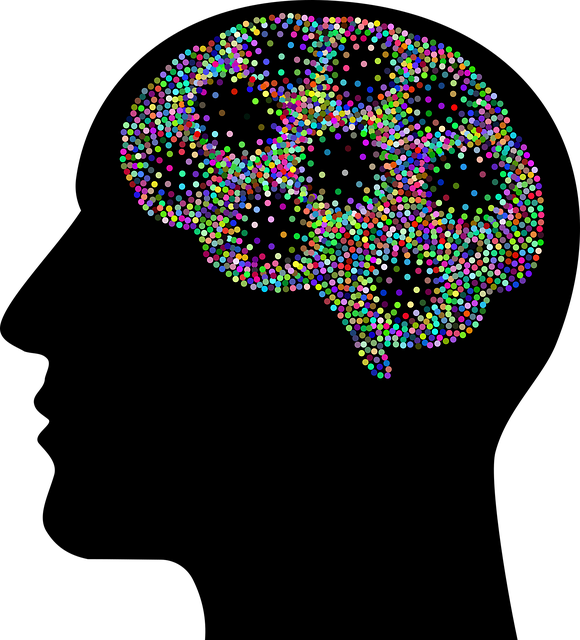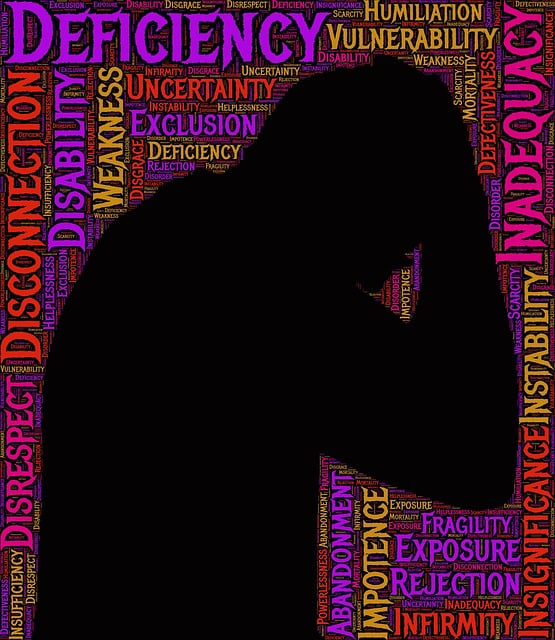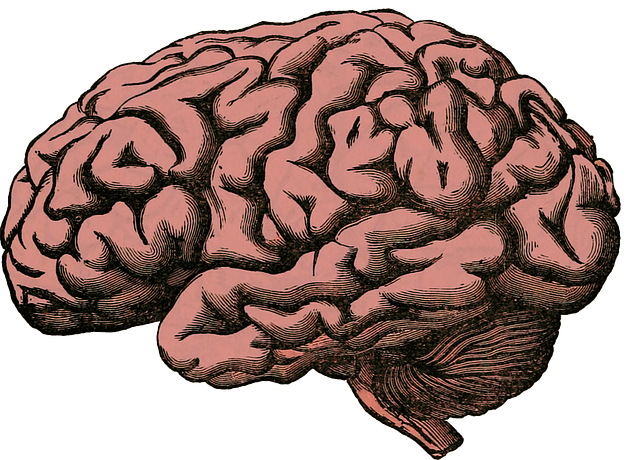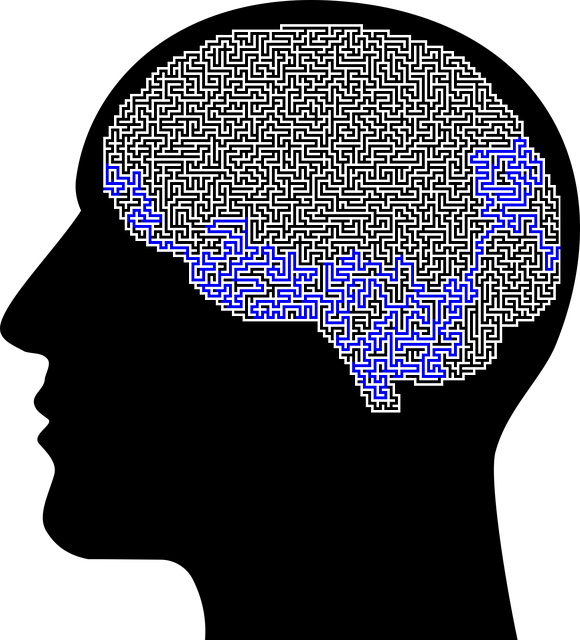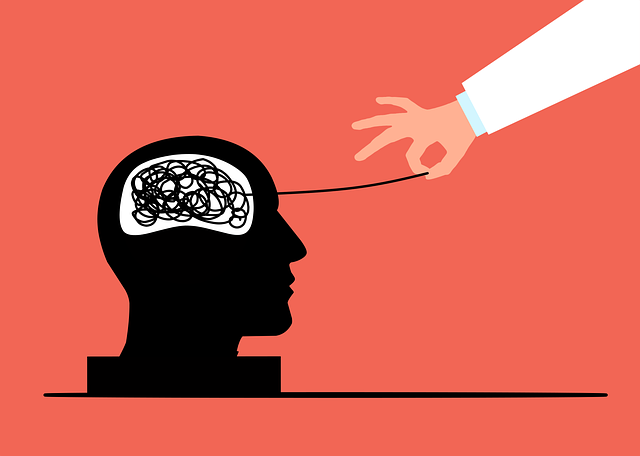Mental wellness is a crucial aspect of overall well-being, with unique challenges affecting children and men differently. For children, early therapy interventions are vital to address learning, social, or emotional regulation issues. Men, often pressured to suppress emotions, face unaddressed mental health concerns with severe consequences. Cultural sensitivity in healthcare reaches underserved populations through tailored crisis guidance and empathy-building exercises. Identifying common issues like anxiety and depression early is key. Therapy, including play and art therapy for children, CBT for adults, and journaling as a complement, offers specialized support. A collaborative effort between parents, caregivers, and communities promotes mental well-being through open conversations, mindfulness meditation, and stigma reduction initiatives. In the digital age, dedicated services like Mind Over Matter principles tackle anxiety and depression in children while empowering men through therapy, social skills training, and coaching to foster open dialogue and personal growth.
Mental wellness is a cornerstone of overall health, yet it’s often overlooked, especially in children and men. This article delves into the profound impact of mental wellness on these groups, exploring common issues like anxiety, depression, and trauma. We highlight the transformative power of therapy, providing effective treatments tailored for both children and men. Additionally, we offer practical strategies for parents, caregivers, and communities to promote mental wellbeing. Discover valuable resources and support networks designed to enhance mental health care for all.
- Understanding Mental Wellness and Its Impact on Children and Men
- Identifying Common Mental Health Issues in Kids and Adult Males
- The Role of Therapy: Effective Treatments for Children and Men
- Promoting Mental Wellbeing: Strategies for Parents, Caregivers, and Communities
- Available Resources and Support Networks for Mental Health Care
Understanding Mental Wellness and Its Impact on Children and Men

Mental wellness is a crucial aspect of overall well-being, and its impact on children and men cannot be overstated. For children, mental health issues can manifest as difficulties in learning, social interactions, or emotional regulation. Early intervention through therapy for children is essential to help them develop coping mechanisms and build resilience. Many men, often societalized to suppress emotions, may face unique challenges that go unnoticed. They are less likely to seek help, leading to unaddressed mental health issues that can have severe consequences on their personal lives and relationships.
Cultural sensitivity in mental healthcare practice plays a vital role in reaching and assisting these underserved populations. Crisis intervention guidance tailored to men’s issues can be life-saving. Building empathy between therapists and clients, especially through understanding cultural nuances, helps create safe spaces where men feel comfortable discussing their struggles openly. Effective strategies include teaching emotional awareness, promoting active listening, and offering support networks to foster a sense of belonging and reduce feelings of isolation.
Identifying Common Mental Health Issues in Kids and Adult Males

Identifying mental health issues early is crucial for effective treatment and improved outcomes. Common concerns among children often include anxiety disorders, depression, and attention-deficit/hyperactivity disorder (ADHD). These conditions can manifest as persistent feelings of sadness, excessive worry, difficulty concentrating, or impulsive behaviors. Recognizing these symptoms and seeking appropriate therapy for children is essential to supporting their mental wellness journey.
For adult males, specific challenges may include depression, substance abuse, and anxiety disorders. Cultural sensitivity in mental healthcare practice plays a vital role here, as societal expectations and gender stereotypes can impact the expression of emotional distress. Building empathy through guidance and journaling exercises can encourage men to open up about their struggles. By fostering an environment free from judgment, mental wellness professionals can offer tailored support, ensuring that both children and adult males receive the necessary care for their unique issues.
The Role of Therapy: Effective Treatments for Children and Men

Children and men alike can greatly benefit from therapy as a powerful tool for mental wellness promotion. Many issues unique to these demographics, such as gender-specific challenges and age-related struggles, can be effectively addressed through specialized therapeutic approaches. For children, play therapy and art therapy offer safe, non-verbal means of expression, helping them process emotions and experiences. These methods facilitate open communication, making it easier for young individuals to share their thoughts and feelings, especially when words might not be readily available.
Men often face societal expectations that discourage emotional vulnerability, leading to increased rates of undiagnosed mental health issues. Therapy provides a space where men can explore and process emotions without judgment. Cognitive-behavioral therapy (CBT) has proven effective in treating various conditions, including depression and anxiety. By identifying and changing negative thought patterns, CBT empowers individuals to develop healthier coping mechanisms, fostering improved mental wellness. Additionally, incorporating practices like Mental Wellness Journaling Exercise Guidance can complement therapy, encouraging self-reflection and promoting burnout prevention strategies for both children and men seeking support.
Promoting Mental Wellbeing: Strategies for Parents, Caregivers, and Communities

Promoting mental wellbeing is a collective effort involving parents, caregivers, and communities. For families, fostering open conversations about emotions and encouraging expressions of feelings from an early age can significantly contribute to a child’s mental health. Implementing strategies like mindfulness meditation practices tailored for kids can help them develop emotional resilience. Caregivers can also play a vital role by prioritizing self-care routine development; taking time for themselves ensures they are equipped to support others effectively.
Communities, too, have a part to play in therapy for children and men’s issues. Initiatives that raise awareness about mental health and reduce stigma open doors for individuals seeking help. Encouraging participation in group activities that promote bonding and emotional intelligence can also foster healthier communities. Mood management techniques, integrated into daily routines, offer another powerful tool for maintaining balanced mental states, especially during challenging times.
Available Resources and Support Networks for Mental Health Care

In today’s digital era, navigating mental wellness is a crucial aspect of holistic health. Fortunately, there are abundant resources and support networks available for those seeking assistance with their mental health care. For children, therapy plays a pivotal role in fostering healthy development, addressing specific issues such as anxiety, depression, or behavioural challenges. Various professionals, including child psychologists and therapists, offer specialized services tailored to young minds using evidence-based practices like Mind Over Matter principles.
Men often face unique mental health challenges due to societal expectations and gender stereotypes. Fortunately, many organizations now provide dedicated support for men’s issues. Therapy, social skills training, and mental wellness coaching programs developed by experts help men explore and overcome difficulties related to stress, trauma, or low self-esteem. These services offer a safe space for open dialogue and personal growth, ensuring individuals have access to the necessary tools to thrive.
Mental wellness is a crucial aspect of overall health, impacting children and men in unique ways. By understanding common mental health issues and their effects, we can foster supportive environments. Therapy offers effective treatments tailored to children and men, while strategic promotions at the familial and community levels can prevent and manage these issues. Leveraging available resources and support networks ensures accessible care for everyone, making mental wellness a shared responsibility and a vital component of modern society. With focused efforts, we can enhance the well-being of our youngest and male members, fostering healthier, more resilient communities.
